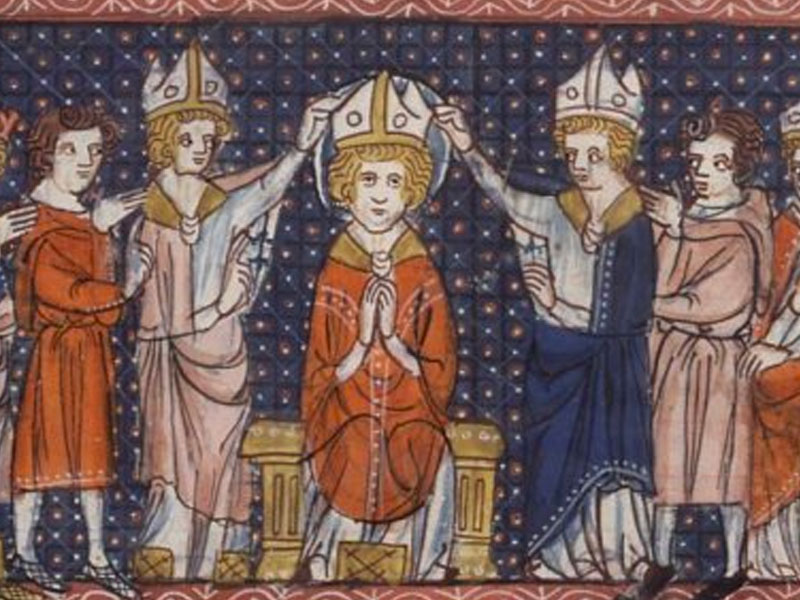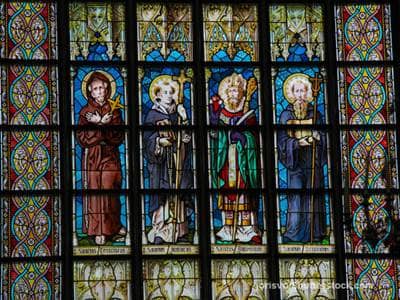St. Hilary (315?-368)

This staunch defender of the divinity of Christ was a gentle and courteous man, devoted to writing some of the greatest theology on the Trinity, and was like his Master in being labeled a “disturber of the peace.” In a very troubled period in the Church, his holiness was lived out in both scholarship and controversy.
Raised a pagan, he was converted to Christianity when he met his God of nature in the Scriptures. His wife was still living when he was chosen, against his will, to be the bishop of Poitiers in France. He was soon taken up with battling what became the scourge of the fourth century, Arianism, which denied the divinity of Christ.
The heresy spread rapidly. St. Jerome said “The world groaned and marveled to find that it was Arian.” When Emperor Constantius ordered all the bishops of the West to sign a condemnation of Athanasius, the great defender of the faith in the East, Hilary refused and was banished from France to far off Phrygia. Eventually he was called the “Athanasius of the West.” While writing in exile, he was invited by some semi-Arians (hoping for reconciliation) to a council the emperor called to counteract the Council of Nicea. But Hilary predictably defended the Church, and when he sought public debate with the heretical bishop who had exiled him, the Arians, dreading the meeting and its outcome, pleaded with the emperor to send this troublemaker back home. Hilary was welcomed by his people.
-
St. Agnes (d. 258?)
-
St. Elizabeth Ann Seton (1774-1821)
-
St. Elzear and Blessed Delphina (1286-1323) (1283-1358)
-
St. Bernadette Soubirous (1844-1879)
-
Assumption of Mary
-
Blessed William Carter (d. 1584)
-
St. Claude la Colombière (1641-1682)
-
Blessed Honoratus Kozminski (1825-1916)
-
St. Elizabeth of Portugal (1271-1336)
-
St. Peter of Alcantara (1499-1562)


